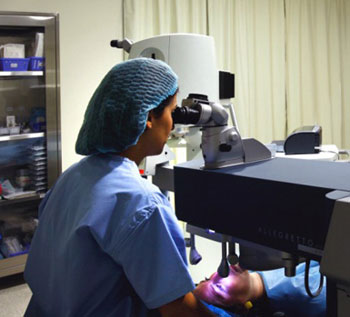 I have a new name, since I live in Kurdistan. Civil servants decided that the name in my passport cannot be right. They added my father’s surname, between my surname and my family name. Now I am Judit Anthony Neurink.
I have a new name, since I live in Kurdistan. Civil servants decided that the name in my passport cannot be right. They added my father’s surname, between my surname and my family name. Now I am Judit Anthony Neurink. It would make my father smile, if he had been alive to know. But I myself do not really smile. My name is my brand, that’s who I am. Adding something to it changes it all.
And it is not as if the Kurdish system of naming is so perfect. It has led to major problems, for instance in the voters list for the upcoming elections. There are people who have exactly the same name. Logically, if you add the father’s and the grandfather’s names to the surname.
Then you might have I don’t know how many Mohammed Abdullah Mohammeds, or Ahmed Mohammed Ahmeds, or Saman Salar Samans, or Hiwa Mahmoud Hiwa’s. Because in the Kurdish and Iraqi tradition very often surnames return in the family.
How to solve the problem? Well, give every citizen his/her own unique identity number next to the name. That way, you always know with which Saman Salar you are dealing.
People with the same name are common all over the world. I know someone with my own name living in Holland, as I found out when we wanted the same email address. But for the authorities that does not matter, as we are both also known by our individual personal number.
In Kurdistan the problem is of course more complicated than this. The fact that deceased people are still on the voters’ lists, shows us it is connected to registration, and to sharing information between different departments.
And that is caused by a lack of computerisation of the government. Of course, until quite recently everything was written by hand as hardly any computers existed. In these modern times, the government needs a good registration of its civilians, so it needs computers. To make up for the time lost, extra work and people have to be put in and a proper registration designed and conducted.
 And then, the different authorities will have to start sharing information and files digitally. That is an issue to discuss, as in my country we still have people who are against it, for reasons of privacy and opportunities for digital thieves and hackers.
And then, the different authorities will have to start sharing information and files digitally. That is an issue to discuss, as in my country we still have people who are against it, for reasons of privacy and opportunities for digital thieves and hackers. But somehow privacy is not really an issue in Kurdistan, and the newest software should make the systems more watertight than before.
Kurdistan must go digital. Not only to solve the many problems in the voter registration. Also to bring the whole system into the 21ste century. Because that’s where we, civilians, have already landed.
This blog was first published in Kurdish in the daily Kurdistani Nwe





